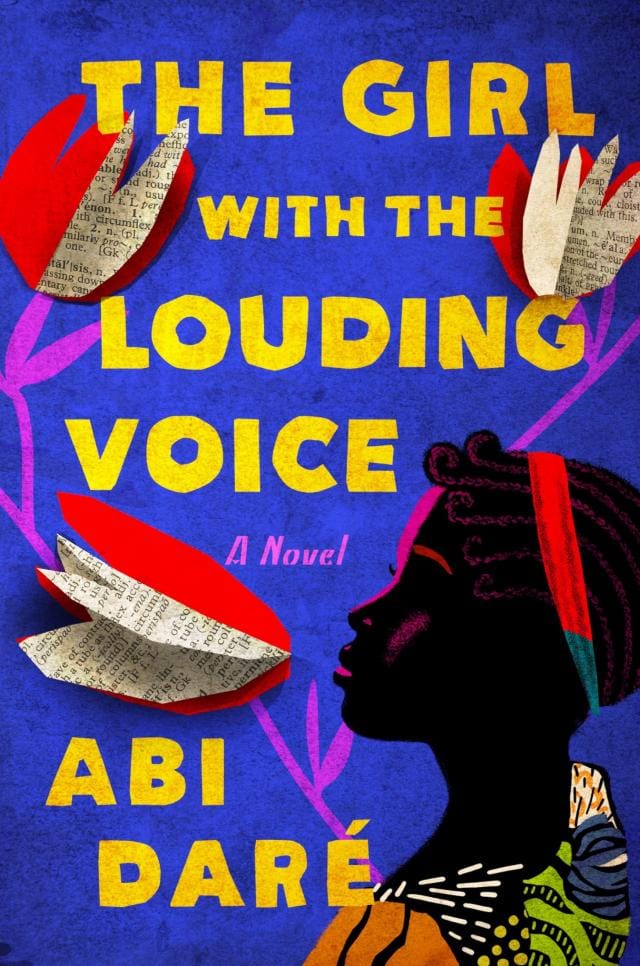The Girl with the Louding Voice - a heart-breaking and heart-warming read
A review of Abi Daré’s 2020 debut novel that explores the importance of education and autonomy for young women and girls living in poverty in Nigeria.

They say you shouldn’t judge a book by its cover, but when I walked past this book in my local Waterstones I was attracted to its bold, colourful display. That said, it was the broken English stamped on the cover in the bold white font that instantly drew me in. I recall thinking why did the author choose to write ‘louding’ instead of ‘loud’?
I would soon find out that Nigerian author Abi Daré was very intentional in her use of broken, or non-standard, English, which she also used throughout the book to embody the narrator and protagonist; a fourteen-year old Nigerian girl called Adunni who was pulled out of school because she couldn’t afford the fees. ‘The girl with the louding voice’ starts with her life of poverty in the small, rural village of Ikati. She strongly desires to continue her education but is limited by the options available to young women in her village, her only option is a forced marriage arranged by her father in exchange for money. When tragic circumstances force her to abscond from her loveless marriage, she ends up working in Lagos as a housemaid. Despite the many obstacles along her way, Adunni remains adamant that education will liberate her, and her voice will be heard.
With the harsh situations Adunni faces, it was easy to forget that this is a coming of age story. I appreciated how Daré seamlessly weaves in many social topics and issues relevant to Nigeria. Adunni may be young, but her innocent, feisty, and occasionally naïve, character provides a raw, honest, unfiltered perspective. From child marriage to rape, child labour, abuse, corruption, and class disparity - Daré explores these issues in a way that highlights the misogyny and sexism inherent in the struggles the female characters face. The contrast between these scenarios and the curious, youthful voice spoken in broken English emphasizes the harsh reality facing young girls like Adunni in a patriarchal society.
This is an inspiring book, and it has undoubtedly left a mark on me. The first-person narrative is immersive to the point that you forget that Adunni’s character is one whose external voice is consistently repressed by those around her. Adunni yearns for a ‘louding voice’ yet to the reader she is heard loud and clear, Daré superbly grants a voice to a character that represents some of the most vulnerable, exploited, and invisible members of Nigerian society.
In the end, it may be reassuring that the difficult life Adunni faces is a fictional one, but the book draws from real life scenarios that many young women and girls are forced into so this is not a book you are likely to forget. Daré allows you passage on an emotional journey alongside Adunni and you will laugh with her, cry with her, and hope with her.
The Girl with the Louding Voice
Author Abi Daré









